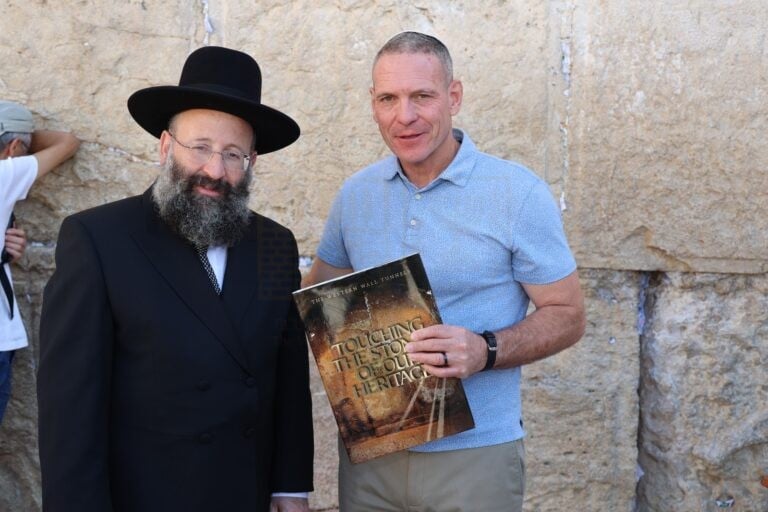Parashat Shelach 5782
Rabbi Shmuel Rabinowitz, Rabbi of the Western Wall and Holy Sites
Parashat Shelach tells the story of the meraglim, the spies sent by Moses, and the dire results of their mission. The spies, twelve respected people, were sent to the land of Canaan – which is actually the Land of Israel – while the children of Israel were in the desert on their way to the Land. The purpose of the mission was to explore the Land and its residents. When the spies returned, ten of them chose to cause the nation to despair by their scary stories of the inhabitants’ strength. Only two of them, Joshua and Caleb, chose an optimistic and faithful approach, saying, “We can surely go up and take possession of it, for we can indeed overcome it.” The nation, believing the ten spies, fell into despair. As a result, G-d determined that the nation was not worthy of entering the Land since it had no faith. The children of Israel were detained in the desert for another thirty-nine years until that entire generation had passed, and only the next generation merited entering the Land.
When we read the story carefully, the verb “latur” (to scout, explore) is repeated many times:
“…who will scout the Land of Canaan…sent to scout the Land… to scout the Land of Canaan…So they went up and explored the land… They returned from scouting the Land… The land we passed through to explore…” The verb “lirot” (to see, show) is also repeated several times: “You shall see what [kind of] land it is… they showed them the fruit of the land… and there we saw even the offspring of the giant… and all the people we saw in it… There we saw the giants…”
(Numbers 13).
This repetition shows that to understand this story, we must delve into the deeper meaning of these expressions. Surprisingly, at the end of this parasha, there is a seemingly completely different subject – the commandment of tzitzit (phylacteries), and here too, we encounter these same verbs:
“This shall be fringes for you, and when you see it, you will remember all the commandments of the Lord to perform them, and you shall not wander (taturu) after your hearts and after your eyes after which you are going astray. So that you shall remember and perform all My commandments…”
(Numbers 15, 39-40).
If we look at these verses, we see that in the parasha of tzitzit, seeing leads to remembering G-d’s commandments. In that way, it differs from the spies’ seeing the land which led to a loss of faith and despair. Rabbi Yehuda Aryeh Leib Alter, the rabbi of the Gerre Hassids in Poland in the 19th century, wrote about this in his book Sefat Emet. Seeing, he wrote, expresses the connection between a person and what is external to him. It is an external act. Memory, however, is an internal function in which a person looks inside himself and draws values, descriptions, and facts from his memory.
The spies chose to scout the land and see it, but they did not direct themselves to memory and introspection. They were influenced by the externalities, by what they saw on the surface, and they did not delve into their internal memory which would have led them to faith and confidence in G-d. When what they saw externally dominated, they fell into despair. Had they followed their memory rather than just what they saw, they would have drawn courage and trusted in G-d to lead them, just as He had led them up to then.
The choice of going after what we see or after what we remember, to be dragged by external influence or to delve into introspection – is ours to make. Man has faced this challenge since the dawn of civilization, but nowadays, the challenge is that much greater. External influences pierce through any defense we try to create. Even the marketing content we are exposed to is earmarked for us through complicated algorithms that analyze our habits and tendencies. We need courage and true desire in order to focus on memory, on introspection, on listening to the internal voice that calls to us to invest in values, in Judaism, in morality, and in our families and to let that voice direct us.
We have no choice. If we seek to live a worthy, qualitative, and happy life, we must think about how and how much we are influenced by what we see externally, and stop it. We must think about how we can succeed in listening to and remembering the internal voice that will direct us.









